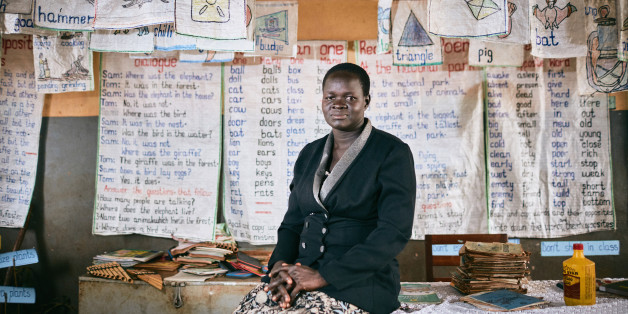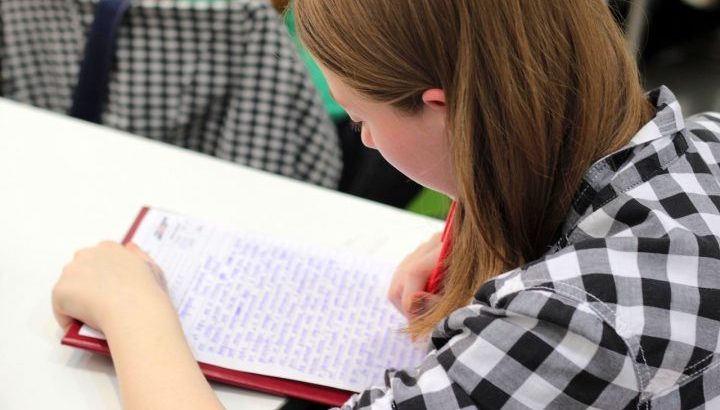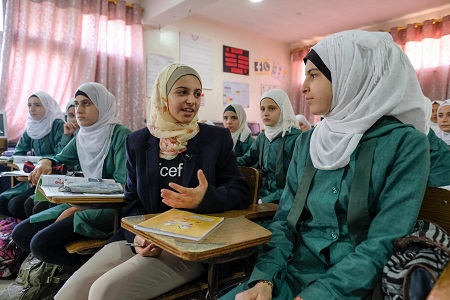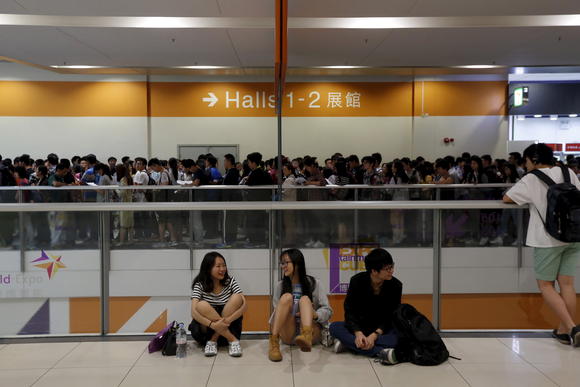Uganda/November 07, 2017/ Source: http://www.huffingtonpost.co.uk
My name is Jenifer Aloyo, a classroom teacher of a government-aided primary school in Western
Uganda. For the last 10 years I have been teaching Years 3 and 7 as well as English. However, in these past so many years, I have also experienced the heartbreaking situation where ambitious young girls have repeatedly missed out on the education they deserve.
Where I live, in the district of Kiryandongo, there is a divergence of cultures including refugees who have been displaced by disastrous circumstances in South Sudan as well as Kasese and Bududa in Uganda. This has left many girls and young women vulnerable, and, within a complexity of issues, means that the education of daughters is less important than their marriage.
I have seen girls enrolled in school at a late age, perhaps eight years old, because they had been kept at home to do household chores or to take care of their siblings. Parents have also been scared to send their daughters to school for fear that they would be kidnapped as they walk tough distances through thickets. They are considered vulnerable and weak.
As they grow into young women, girls are so often bullied by their male counterparts and not supported either at school or at home to understand their bodies, reproductive health and the importance of their own rights. When they begin to have their period, girls are not given the facts and often told misinformation from ill-intentioned people – people who allege that when a girl menstruates it is a sign that she is ready for marriage and child bearing. Girls are so often exposed to illicit practices inappropriate to their age and mislead into early sex. For this reason, I have seen countless girls drop out of school due to teenage pregnancies and early marriage.
I have also countered cases where parents have tasked girls with «business» during school time. So as boys are concentrating in class, girls are anxiously wondering how they will sell the pancakes they given to take to school before hurrying back home to prepare for the evening meal. This greatly affects their learning.
At home, husbands and fathers often leave the responsibility of their children’s education to the women. Unfortunately though, many are not empowered to do this.
Almost half of women in Uganda are unable to read. They lack the money, skills and influence they need to provide for their family. They’re voices are not heard and so the issues facing their daughters are overlooked. Even something as simple as a need for underwear can be forgotten, so adolescent girls can be forced home from school due to shame and discrimination. They will eventually drop out.
All of this results in generation after generation of young women who, deprived of an education, become mothers too soon and will repeat the same challenges in supporting their own children.
Missing out on an education means that a young mother’s understanding of, and access to, healthcare can be so poor. She will not make antenatal or postnatal appointments. She will struggle to visit hospitals or clinics when she need to. Her children will miss out on vaccinations against preventable diseases. And, if she cannot read, she will face the struggle to interpret medical advice and instructions, sometimes resulting in a dangerous under or overdose for her children.
While all this happens, «uneducated» young mothers face such stigma from society. They are looked at as misfits and are rarely allowed to participate in their community or school meetings. They struggle with such low self-esteem and acceptance and cannot speak up for the rights of themselves of their children.
Injustice truly is a cycle. But it can be broken.
Build Africa is helping young mothers in Jenifer’s region to learn literacy skills and access healthcare and nutrition services.
Research shows that an educated mother is more likely to be healthier, more economically stable and to take care of her children better. She will have the power to vaccinate her children, providing more nutritious meals and nurture them from their earliest days.
Most importantly, her children will be more likely to complete their own education, so they will have more opportunities in life and one day send their own children to school.
Please help transform the life of a young mum in Jenifer’s community: support Build Africa’s #MumsReadKidsSucceed appeal. It could be the most powerful thing you do today.
http://www.build-africa.org/youngmums
Source:
http://www.huffingtonpost.co.uk/jenifer-aloyo/injustice-in-the-classroo_b_18479232.html













 Users Today : 90
Users Today : 90 Total Users : 35459996
Total Users : 35459996 Views Today : 126
Views Today : 126 Total views : 3418591
Total views : 3418591